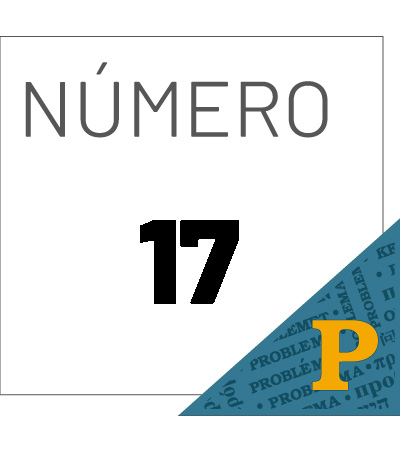Democratic Confederalism: An Alternative for Facing Tensions Between Global Citizenship and Localist Citizenship
Este artículo explora las tensiones entre dos concepciones diferentes de “ciudadanía”. Por una parte, señalamos las virtudes y limitaciones de la ciudadanía cosmopolita en los téminos en los que Seyla Benhabib la entiende en “El derecho de los otros…”; por otra, ahondamos en una noción de ciudadanía distinta, la localista, en una versión que puede entrar en conflicto con algunos valores cosmpolitas, a saber, el localismo tal como lo entienden algunas comunidades autónomas mexicanas, en particular las zapatistas. Aunque el cosmopolitismo federalista de Benhabib es inclusivo en esencia, está concebido desde una perspectiva preponderantemente globalista y termina siendo asimétrico. Aunque su propuesta tiene aspectos positivos, se enfrenta con algunas limitaciones en el caso de las comunidades autónomas mexicanas. En este artículo sostenemos que el confederalismo democrático es una forma de organización sociopolítica que busca fortalecer la autoorganización de los actores sociales y reconocer la práctica de la ciudadanía tal como las comunidades autónomas la ejercen. Proponemos que el confederalismo democrático podría ser una alternativa para disminuir las tensiones entre la ciudadanía global y la idea de ciudadanía dentro de las comunidades autónomas.
Detalles del artículo
Uso de licencias Creative Commons (CC)
Todos los textos publicados por Problema. Anuario de Filosofía y Teoría del Derecho sin excepción, se distribuyen amparados con la licencia CC BY-NC 4.0 Internacional, que permite a terceros utilizar lo publicado, siempre que mencionen la autoría del trabajo y la primera publicación en esta revista. No se permite utilizar el material con fines comerciales.
Derechos de autoras o autores
De acuerdo con la legislación vigente de derechos de autor Problema. Anuario de Filosofía y Teoría del Derecho reconoce y respeta el derecho moral de las autoras o autores, así como la titularidad del derecho patrimonial, el cual será transferido —de forma no exclusiva— a Problema para permitir su difusión legal en acceso abierto.
Autoras o autores pueden realizar otros acuerdos contractuales independientes y adicionales para la distribución no exclusiva de la versión del artículo publicado en Problema. Anuario de Filosofía y Teoría del Derecho (por ejemplo, incluirlo en un repositorio institucional o darlo a conocer en otros medios en papel o electrónicos), siempre que se indique clara y explícitamente que el trabajo se publicó por primera vez en Problema.
Para todo lo anterior, deben remitir la carta de transmisión de derechos patrimoniales de la primera publicación, debidamente requisitada y firmada por las autoras o autores. Este formato debe ser remitido en PDF a través de la plataforma OJS.
Derechos de lectoras o lectores
Con base en los principios de acceso abierto las lectoras o lectores de la revista tienen derecho a la libre lectura, impresión y distribución de los contenidos de Problema por cualquier medio, de manera inmediata a la publicación en línea de los contenidos. El único requisito para esto es que siempre se indique clara y explícitamente que el trabajo se publicó por primera vez en Problema. Anuario de Filosofía y Teoría del Derecho y se cite de manera correcta la fuente incluyendo el DOI correspondiente.
Consúltese https://creativecommons.org/licenses/by-nc/4.0/

Esta obra está bajo una licencia internacional Creative Commons Atribución-NoComercial 4.0.
Citas
Aguilar, Y. (2018). Nosotros sin México: naciones indígenas y autonomía. El futuro es hoy. Biblioteca Nueva.
Al-Ali, N. & Tas, L. (2021). Kurdish Women’s Struggles with Gender Equality: From Ideology to Practice. Third World Quarterly, 42(9), 2133-2151.
Aleinikoff, A. (2007). Comments on The Right of Others. European Journal of Political Theory, 6(4), 424-430. Doi:10.1177/1474885107080648
Aparicio Wilhelmi, M. (2009). La libre determinación y la autonomía de los pueblos indígenas. El caso de México. Boletín Mexicano de Derecho Comparado, 1(24). http://dx.doi.org/10.22201/iij.24484873e.2009.124.4087
Baschet, J. (2018). ¡Rebeldía, resistencia y autonomía! La experiencia zapatista. Ediciones Eón.
Bengio, O. (2014). Kurdish Awakening. Nation Building in a Fragmented Homeland. University of Texas Press.
Benhabib, S. (2004). The Right of Others: Aliens, Residents and Citizens. Cambridge University Press.
Benhabib, S. (2006). Another Cosmopolitanism. Hospitality, Sovereignty, and Democratic Iterations (with responses by Jeremy Waldron, Bonnie Honig, and Will Kymlicka). Oxford University Press.
Benhabib, S. (2007). Democratic Exclusions and Democratic Iterations: Dilemmas of “Just Membership” and Prospects of Cosmopolitan Federalism. European Journal of Political Theory, 6(4), 445-462. Doi:10.1177/1474885107080650
Benhabib, S. (2017). Democratic Sovereignty and Transnational Law: On Legal Utopianism and Democratic Skepticism. Critical Theory in Critical Times. Columbia University Press.
Briy, A. (2019). The Theory and Practice of the Kurdish Women’s Movement: An Interview in Diyarbakir. Open Democracy. https://www.opendemocracy.net/en/theory-and-practice-of-kurdish-women-s-movement-interview-in-diyarbakir/
Burguete C. & Mayor, A. (Eds.). (2000). Indigenous Autonomy in Mexico. International Work Group for Indigenous Affairs.
Cerda, A. (2011). Imaginando zapatismo: multiculturalidad y autonomía indígena en Chiapas. UAM-X.
Çifçi, D. (2019). The Kurds and the Politics of Turkey. Agency, Territory and Religion. I. B. Tauris.
Cruz Martínez, M. (2002). La voz íntima de la democracia: el municipio en México. Federalismo y regionalismo. UNAM, Instituto de Investigaciones Jurídicas.
Díaz-Polanco, H. (2009). La diversidad cultural y la autonomía en México. Nostra.
González Casanova, P. (2001). Los zapatistas del siglo XXI. Revista Convergencia, 13, 22-25.
Hammy, C. & Miley, Thomas Jeffrey. (2022). Lessons from Rojava for the Paradigm of Social Ecology. Frontiers in Political Science, 3, 2-13. https://doi.org/10.3389/fpos.2021.815338
Harvey, N. (2000). La rebelión en Chiapas: la lucha por la tierra y la democracia. ERA.
Kymlicka, W. (1989). Liberalism, Community, and Culture. Clarendon Press.
Larrosa, M., Hernández, M. A., Alavez, J. F. (2019). Las Juntas de Buen Gobierno zapatistas, ensayo de una diferente forma de gobierno local: acercamiento desde la ciencia política. Alegatos, 101.
Martínez Espinoza, M. I. (2007). Un puente entre la movilización y la democratización: la democracia en rebeldía de las Juntas de Buen Gobierno del movimiento zapatista. Pensamiento Jurídico, 19, 149-174.
Means, A. (2007). The Right of Others. European Journal of Political Theory, 6(4), 406-423. Doi:10.1177/1474885107080647
Medina, L. (2009). Federalismo mexicano para principiantes. Documentos de Trabajo, 58. CIDE.
Miller, D. (2007). National Responsibility and Global Justice. Oxford University Press.
Mora Amezcua, H. M. (2020). Movimiento zapatista y reforma constitucional en México. El artículo 2o. en la Constitución mexicana. CAP Jurídica Central, 4(7), 071-084.
Mora, M. (2017). Kuxlejal Politics. Indigenous Autonomy, Race, and Decolonizing Research in Zapatista Communities. University of Texas Press.
Mora, B. M. & Stahler-Sholk, R. (Coords.) (2011). Luchas “muy otras”: zapatismo y atonomía en las comunidades indígenas de Chiapas. UAM; CIESAS; UNACH.
Novellis, A. (2018). The Rise of Feminism in the PKK: Ideology or Strategy? Zanj: The Journal of Critical Global South Studies, 2(1), 115-133. Doi:10.13169/zanjglobsoutstud.2.1.0115
Öcalan, A. (n. d.). Manifiesto por una civilización democrática. Tomo 2. Civilización Capitalista. Descontrol Editorial.
Öcalan, A. (2011). Democratic Confederalism. International Initiative “Freedom for Abdullah Öcalan-Peace in Kurdistan”.
Öcalan, A. (2013). Liberating Life: Women’s Revolution. International Initiative “Freedom for Abdullah Öcalan-Peace in Kurdistan”.
Öcalan, Abdullah et al. (2020). Social Ecology and Democratic Confederalism. The Anarchist Library.
Sandel, M. (1996). Democracy’s Discontent: America in Search of a Public Philosophy. Belknap Press at Harvard University.
Sassen, S. (2007). Response. European Journal of Political Theory, 6(4), 433-446. Doi:10.1177/1474885107080649.
Shahvisi, A. (2018). Beyond Orientalism: Exploring the Distinctive Feminism of Democratic Confederalism in Rojava. Geopolitics, 26(11), 1-25. Doi:10.1080/14650045.2018.1554564
Stilz, A. (2016). The Value of Self-Determination. In David Sobel, Peter V. & Steven W. (Eds.). Oxford Studies in Political Philosophy. Oxford University Press.
Stilz, A. (2019). Territorial Sovereignty. A Philosophical Exploration. Oxford University Press.
Walzer, R. (2001). In Response: Support for Modesty and the Nation-State. The Communitarian Network, 11(2), 28-31.

























